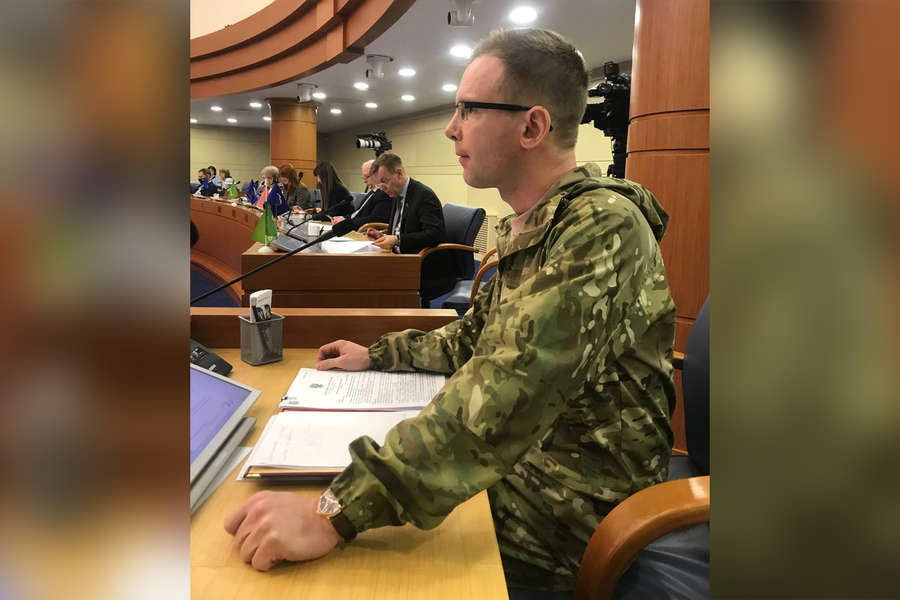Meppo
Anticommunist Mole
- Location
- Default City, Russia
- Pronouns
- he/him
concept list
1998–1999: Sergei Kiriyenko (nonpartisan / Right Cause)
1999–2007: Yury Luzhkov (Fatherland – All Russia)
1999 def. Gennady Zyuganov (CPRF), Boris Nemtsov (Right Cause), Grigory Yavlinsky (Yabloko), Vladimir Zhirinovsky (LDPR)
2003 def. Aleksandr Lebed (Union of Right Forces), Yury Lodkin (CPRF), Grigory Yavlinsky (Yabloko)
2007–2011: Boris Gromov (Fatherland – All Russia)
2007 def. Boris Nemtsov (Union of Right Forces), Gennady Zyuganov (CPRF), Vladimir Zhirinovsky (LDPR)
2011–2015: Sergei Zhilkin (Union of Right Forces)
2011 def. Boris Gromov (Fatherland – All Russia), Mikhail Yevdokimov (Agrarian), Viktor Shershunov (CPRF), Olga Beklemishcheva (Social Democratic)
2015–2022: Sergei Sobyanin (Fatherland – All Russia)
2015 def. Sergei Zhilkin (Union of Right Forces), Vyacheslav Lysakov (Third Force), Roman Grebennik (CPRF), Tatyana Astrakhankina (Communists of the Future)
2019 def. Sergei Levchenko (CPRF), Mikhail Kasyanov (Union of Right Forces), Nikolai Rybakov (Yabloko)
2022–2023: Vyacheslav Volodin (Fatherland – All Russia)
2023–present: Artyom Samsonov (Union of Left Forces)
2023 def. Yegor Beroyev (nonpartisan), Sergei Andreyev (Union of Right Forces), Anastasia Rakova (Fatherland – All Russia)
"[Vyacheslav Volodin] has always had presidential ambitions, at least since 2011... A major party leader at only 47, a canny political operator who knows the Duma inside and out, a far more publicly aggressive and proactive politician than most, almost comparable to an American congressman. A lot of people argued that it helped him shore up Sobyanin in the Duma, shore up his conservative credentials – especially once the backlash to his COVID restrictions was whipped up. A lot of people saw him as the 'grey cardinal' of Fatherland by that point, or the future of Russian conservatism, a kind of Orthodox Russophilia reborn, draped in the rags of the Republican Party...
Frankly speaking, this was also his greatest weakness. This aggression, this arrogance made him intolerant of compromises. He was incapable of responding to the attacks lobbed on his character on the Internet. For Volodin, 2023 really was the worst possible moment— all of the Sobyanin administration's scandals were now his problem, and, well, you already know what the surrogate scandal did. And thank God it did."
(c) Protoiereus Vsevolod Chaplin in interview to Dozhd, c. 10.02.2023
I had some other considerations for the President-elect but I don't really know any expressly left-wing Russian musicians other than Rustem Bulatov and he doesn't seem like a guy who would be willing to participate in politics even if most of his songs are political to some extent
1998–1999: Sergei Kiriyenko (nonpartisan / Right Cause)
1999–2007: Yury Luzhkov (Fatherland – All Russia)
1999 def. Gennady Zyuganov (CPRF), Boris Nemtsov (Right Cause), Grigory Yavlinsky (Yabloko), Vladimir Zhirinovsky (LDPR)
2003 def. Aleksandr Lebed (Union of Right Forces), Yury Lodkin (CPRF), Grigory Yavlinsky (Yabloko)
2007–2011: Boris Gromov (Fatherland – All Russia)
2007 def. Boris Nemtsov (Union of Right Forces), Gennady Zyuganov (CPRF), Vladimir Zhirinovsky (LDPR)
2011–2015: Sergei Zhilkin (Union of Right Forces)
2011 def. Boris Gromov (Fatherland – All Russia), Mikhail Yevdokimov (Agrarian), Viktor Shershunov (CPRF), Olga Beklemishcheva (Social Democratic)
2015–2022: Sergei Sobyanin (Fatherland – All Russia)
2015 def. Sergei Zhilkin (Union of Right Forces), Vyacheslav Lysakov (Third Force), Roman Grebennik (CPRF), Tatyana Astrakhankina (Communists of the Future)
2019 def. Sergei Levchenko (CPRF), Mikhail Kasyanov (Union of Right Forces), Nikolai Rybakov (Yabloko)
2022–2023: Vyacheslav Volodin (Fatherland – All Russia)
2023–present: Artyom Samsonov (Union of Left Forces)
2023 def. Yegor Beroyev (nonpartisan), Sergei Andreyev (Union of Right Forces), Anastasia Rakova (Fatherland – All Russia)
"[Vyacheslav Volodin] has always had presidential ambitions, at least since 2011... A major party leader at only 47, a canny political operator who knows the Duma inside and out, a far more publicly aggressive and proactive politician than most, almost comparable to an American congressman. A lot of people argued that it helped him shore up Sobyanin in the Duma, shore up his conservative credentials – especially once the backlash to his COVID restrictions was whipped up. A lot of people saw him as the 'grey cardinal' of Fatherland by that point, or the future of Russian conservatism, a kind of Orthodox Russophilia reborn, draped in the rags of the Republican Party...
Frankly speaking, this was also his greatest weakness. This aggression, this arrogance made him intolerant of compromises. He was incapable of responding to the attacks lobbed on his character on the Internet. For Volodin, 2023 really was the worst possible moment— all of the Sobyanin administration's scandals were now his problem, and, well, you already know what the surrogate scandal did. And thank God it did."
(c) Protoiereus Vsevolod Chaplin in interview to Dozhd, c. 10.02.2023
I had some other considerations for the President-elect but I don't really know any expressly left-wing Russian musicians other than Rustem Bulatov and he doesn't seem like a guy who would be willing to participate in politics even if most of his songs are political to some extent
Last edited:



